Many people look forward to retirement, a period of life where they can finally relax, pursue hobbies, and maybe even fulfill some long-held dreams. For a growing number of retirees, one of those dreams includes hitting the open road in an RV.
The idea of living a mobile lifestyle, exploring new places, and having the freedom to travel on your own schedule sounds like a dream come true. But what is it really like to have an RV in retirement? Let’s explore this unique lifestyle and uncover the realities of RV living for retirees.
Embracing the Freedom: The Dream of RV Living in Retirement
When you first imagine retirement, you might think of days spent lounging by the beach, playing golf, or spending time with grandchildren. But for some, the call of the open road is irresistible. An RV offers the promise of adventure and discovery, a chance to see the country (or even beyond) from the comfort of your own home on wheels.
Freedom and Flexibility
One of the biggest draws of RV living is the freedom it offers. With an RV, you’re not tied down to one location. Want to spend the winter in sunny Florida and the summer in the cool mountains of Colorado? You can do that. The ability to change your scenery and environment as the seasons change is a huge advantage. It allows you to avoid extreme weather and enjoy a more pleasant climate year-round.
At the time of this writing, Pam, Winston, and I are in the great north of Michigan. We are spending the summer out of the excessive heat that has plagued the rest of the United States. Plans have us traveling to the Gulf Coast for this winter to escape the cold weather up north.
Only RV living allows those in retirement the opportunity to choose different locations each year. One can chase seventy-degree temperatures year-round if one is so inclined.
The Joys of Exploration
One of the greatest joys of RV living in retirement is the opportunity to explore new places. From national parks and scenic byways to charming small towns and bustling cities, the possibilities are endless.
Many retirees keep a bucket list of destinations and experiences they want to check off. Whether it’s visiting all the major league baseball stadiums, touring historic sites, or simply enjoying the natural beauty of the country, the freedom to explore is a huge perk.
As of this writing, Pam and I have logged over two hundred thousand miles traveling the United States and seeing great things that we want to as we travel in our RV home.
The Downsizing Dilemma
Transitioning to an RV lifestyle often means downsizing significantly. If you’ve spent years or even decades in a traditional home, you’ve probably accumulated a lot of stuff. Moving into an RV requires letting go of many possessions.
This process can be both liberating and challenging. On one hand, it feels great to declutter and simplify your life. On the other hand, parting with items that have sentimental value or that you’ve grown attached to over the years can be tough.
We sold our 3,800-square-foot home in the mountains of Colorado in 2009. We sold everything by having an estate sale. Was it tough to let go of some things? Absolutely! But now we don’t even miss those things and enjoy the freedom of not being encumbered with useless stuff.
Getting Used to Small Spaces
Living in an RV means adjusting to a much smaller space. Depending on the size of your RV, you might have a living area, a small kitchen, a bathroom, and one or two sleeping areas.
Everything is compact and designed to maximize space. While this can be cozy, it also means you have to be more organized. Storage solutions become crucial, and you need to be diligent about putting things away to avoid clutter.
Budgeting for the Long Haul: The Financial Reality of RV Living
Managing Finances
Living on a fixed income can be challenging in any situation, but it’s especially important to manage your finances carefully when you’re on the road. Budgeting for the costs of RV living, including unexpected expenses, is crucial.
Some retirees find ways to supplement their income through part-time work or remote jobs. Others use their skills and hobbies to earn extra money, such as selling crafts or offering services to fellow RVers.
The Cost of RV Living
There’s a common misconception that living in an RV is always cheaper than living in a traditional home. While it can be less expensive in some ways, there are still costs to consider. The initial purchase of an RV can be a significant expense.
Prices vary widely depending on the type, size, and amenities of the RV. In addition to the purchase price, there are ongoing costs such as maintenance, repairs, insurance, fuel, and campground fees.
Maintenance and Repairs
Just like a traditional home, an RV requires regular maintenance to keep everything running smoothly. This includes things like checking the tires, maintaining the engine (if you have a motorhome), and taking care of the plumbing and electrical systems.
It’s important to stay on top of these tasks to avoid more costly repairs down the line. Some retirees enjoy this aspect and find it rewarding to take care of their RV, while others might find it a bit daunting.
Finding the Right Campgrounds
Choosing where to park your RV is a big part of the lifestyle. Campgrounds range from basic sites with minimal amenities to luxury resorts with pools, gyms, and social activities. The type of campground you choose can significantly impact your experience.
Some retirees enjoy the social aspect of staying in campgrounds and make lasting friendships with fellow RVers. Others prefer more secluded spots where they can enjoy peace and quiet.
We spend the majority of our full time RV life in RV Resorts. We sometimes boondock for short periods of time, but mostly, we are hooked to water, sewer, and electric services. We chose our current RV as one that can stay out for weeks without services due to its capacity to store water and provide onboard electricity.
However, due to current safety concerns, we prefer to stay in RV Resorts with other RVers.
Navigating the Learning Curve: Mastering RV Operations
Transitioning to an RV lifestyle in retirement is an exciting adventure, but it comes with a learning curve. Mastering the operations and maintenance of an RV is crucial for ensuring a smooth and enjoyable experience on the road.
In this section, we will explore the essential skills needed for operating and maintaining an RV, provide guidance on where to seek education and training for RV living and highlight important safety considerations and protocols for new RV retirees.
Essential Skills for Operating and Maintaining an RV
Owning and living in an RV requires a different skill set compared to living in a traditional home. Here are some essential skills you’ll need:
1. Driving and Maneuvering
- Confidence on the Road: Driving an RV, especially larger motorhomes, requires confidence and practice. You need to be comfortable handling a bigger vehicle, which includes wider turns, longer stopping distances, and understanding height and weight limitations.
- Parking and Backing Up: Mastering the art of parking and backing up your RV is crucial. Many RV parks have tight spaces, and you’ll often need to maneuver in close quarters. Practice in an open area before tackling crowded campgrounds.
2. Basic Maintenance and Repairs
- Routine Maintenance: Regular maintenance tasks include checking and changing the oil, inspecting and rotating tires, and maintaining the battery. Keeping up with these tasks helps prevent breakdowns and extends the life of your RV.
- Plumbing and Electrical Systems: Understanding the basics of your RV’s plumbing and electrical systems is essential. You should know how to empty and clean the holding tanks, manage water hookups, and troubleshoot electrical issues.
3. Setting Up Camp
- Leveling Your RV: Properly leveling your RV is important for comfort and functionality. Many RVs come with leveling systems, but you’ll still need to understand how to use them correctly.
- Connecting Utilities: Hooking up to water, electricity, and sewer systems at campgrounds is a routine task. Familiarize yourself with the procedures to ensure everything is connected safely and correctly.
4. Resource Management
- Water and Waste Management: Efficiently managing your fresh water supply and waste tanks is critical. You need to monitor levels and know where to find dump stations.
- Energy Consumption: Understanding your RV’s power usage helps you manage your energy resources, especially if you’re relying on batteries or solar panels for power.
Check out our FAQ post where we address many questions that we have been asked.
Where to Seek Education and Training for RV Living
There are several resources available to help you learn the ropes of RV living:
1. RV Dealer Orientation
- Many RV dealers offer orientation sessions when you purchase an RV. These sessions cover the basics of operating and maintaining your specific model. Take advantage of this opportunity to ask questions and get hands-on experience.
2. Online Resources
- YouTube: There are countless YouTube channels dedicated to RV living, offering tutorials on everything from driving tips to maintenance and repair guides.
- Blogs and Forums: Websites like RVLife.com, RVshare.com, and iRV2.com provide a wealth of information, including articles, guides, and forums where you can ask questions and share experiences with other RVers.
3. Books and Manuals
- Several books cover all aspects of RV living. Some highly recommended titles include “The Complete Idiot’s Guide to RVing” by Brent Peterson and “Living the RV Life: Your Ultimate Guide to Life on the Road” by Marc and Julie Bennett.
4. RV Clubs and Organizations
- Joining an RV club can provide valuable resources and a sense of community. Clubs like the Good Sam Club, Escapees RV Club, and Family Motor Coach Association (FMCA) offer educational materials, workshops, and social events.
5. Hands-On Training
- Consider taking an RV driving course to gain confidence behind the wheel. Companies like the RV Driving School and RV Basic Training offer courses designed specifically for RVers.
Safety Considerations and Protocols for New RV Retirees
Safety should always be a top priority when living in an RV. Here are some important considerations and protocols to keep in mind:
1. Road Safety
- Regular Inspections: Before hitting the road, conduct a thorough inspection of your RV. Check tire pressure, fluid levels, and ensure all lights are working properly.
- Safe Driving Practices: Follow safe driving practices, such as maintaining a safe following distance, obeying speed limits, and avoiding distractions. Be aware of weather conditions and adjust your driving accordingly.
2. Fire Safety
- Smoke and Carbon Monoxide Detectors: Ensure your RV is equipped with working smoke and carbon monoxide detectors. Test them regularly and replace batteries as needed.
- Fire Extinguishers: Keep fire extinguishers easily accessible and know how to use them. Place one in the kitchen area and another near the sleeping quarters.
3. Security Measures
- Locks and Alarms: Secure your RV with good-quality locks and consider installing an alarm system. Lock all doors and windows when you’re away.
- Awareness: Be aware of your surroundings, especially when parked in unfamiliar areas. Trust your instincts and move to a different location if something doesn’t feel right.
4. Health Precautions
- First Aid Kit: Carry a well-stocked first aid kit and know basic first aid procedures. This can be crucial in case of minor injuries or health issues.
- Medications and Medical Records: Keep an ample supply of any necessary medications and carry a copy of your medical records. Know the locations of healthcare facilities in the areas you plan to visit.
5. Emergency Preparedness
- Emergency Plans: Have a plan in place for different types of emergencies, such as severe weather, accidents, or medical issues. Know the location of the nearest emergency services and have a list of emergency contacts.
- Communication Devices: Ensure you have reliable communication devices, such as a mobile phone with a strong signal or a satellite phone, to stay connected in case of an emergency.
Cultivating Community on the Go: Social Life in an RV
Social Life on the Road
One concern some people have about RV living is whether they’ll feel isolated or lonely. The good news is that many retirees find a vibrant social community on the road. RV parks and campgrounds often host social events, and it’s common to meet people who share your interests.
Additionally, many RVers use social media and online forums to connect with others, plan meetups, and share tips and experiences.
Staying Connected
In today’s world, staying connected is more important than ever. Reliable internet access is crucial for many retirees, whether it’s for keeping in touch with family, managing finances, or simply enjoying entertainment.
While many campgrounds offer Wi-Fi, the quality can vary. Investing in a good mobile hotspot and data plan can help ensure you have internet access wherever you go. In my post on ten must-have gadgets on my website, I talk about two good sources to stay connected.
Health and Well-being on Wheels: Staying Fit and Healthy
Health and Wellness
Staying healthy on the road is another important consideration. Access to healthcare can be more challenging when you’re constantly moving. It’s a good idea to keep a list of doctors and healthcare facilities in the areas you plan to visit.
Many retirees also invest in telemedicine services to have access to medical advice no matter where they are. Staying active is also essential, and the RV lifestyle offers plenty of opportunities for outdoor activities like walking, biking, and swimming.
Community and Connection
One unexpected benefit of RV living is the sense of community that often develops among fellow travelers. Many RVers describe the friendships they’ve made on the road as some of the most meaningful of their lives. There’s a camaraderie that comes from sharing the same lifestyle, and it’s common to see RVers helping each other out, sharing tips, and forming close bonds.
Tips for Getting Started
If you’re considering the RV lifestyle for your retirement, here are a few tips to help you get started:
1. Do Your Research: Spend time researching different types of RVs, campgrounds, and routes. There’s a wealth of information available online, including forums, blogs, and YouTube channels dedicated to RV living.
2. Rent Before You Buy: If you’re not sure if RV living is right for you, consider renting an RV for a few weeks or months. This can give you a taste of the lifestyle without the commitment of purchasing a vehicle.
Pam and I put 35,000 miles on rented RVs over a six-year period. Those experiences helped us choose our first full time RV home, which lasted seven and a half years before we purchased the next one.
3. Plan Your Finances: Make a detailed budget that includes all potential expenses, from the initial purchase of the RV to ongoing costs like maintenance, insurance, and campground fees.
4. Take Your Time: Don’t rush into decisions. Take your time to find the right RV, plan your routes, and adjust to the lifestyle.
5. Stay Flexible: Be prepared to adapt and change plans as needed. The RV lifestyle is all about flexibility and enjoying the journey.
Planning for the Unexpected: Challenges and Contingencies
Common Setbacks Faced by RV Retirees and How to Handle Them
While the RV lifestyle is rewarding, it’s not without its obstacles. Here are some common setbacks and how to manage them:
1. Mechanical Issues
- Breakdowns: RVs, like any vehicle, can experience breakdowns. Whether it’s an engine problem in a motorhome or a flat tire on a travel trailer, mechanical issues are inevitable.
- Handling Breakdowns: Regular maintenance and inspections can help prevent many issues, but it’s also important to have a roadside assistance plan. Services like Good Sam Roadside Assistance and AAA offer specialized plans for RVs. Keep a toolkit and basic spare parts on hand for minor repairs. We use the FMAC roadside plan.
2. Health Challenges
- Health Changes: As we age, health issues can arise unexpectedly. Managing chronic conditions or facing a sudden illness while on the road can be challenging.
- Handling Health Issues: Maintain a well-stocked first aid kit and keep an ample supply of necessary medications. Research healthcare facilities along your planned route and consider telemedicine services for remote consultations. Always have a list of emergency contacts and medical records readily available.
3. Weather-Related Setbacks
- Severe Weather: RVs are more vulnerable to weather conditions than traditional homes. Storms, extreme temperatures, and natural disasters can pose significant risks.
- Handling Severe Weather: Stay informed about weather forecasts and have a plan for seeking shelter in case of severe weather. Know the locations of nearby shelters or hotels and be prepared to evacuate if necessary. Equip your RV with weather alerts and consider investing in an RV-specific weather radio.
- Be prepared to exit quickly if you have to get out of the way of severe weather.
4. Financial Surprises
- Unexpected Costs: From sudden repairs to higher-than-expected campground fees, financial surprises can disrupt your budget.
- Handling Financial Surprises: Keep an emergency fund specifically for unforeseen expenses. Budget carefully and track your spending to avoid overspending. Consider part-time or remote work to supplement your income if needed.
Preparing for Changes in Health Status, Mechanical Issues, or Natural Disasters
Being prepared for various contingencies can make a significant difference in how smoothly you can handle unexpected situations. Here’s how to prepare:
1. Health Preparedness
- Regular Check-Ups: Schedule regular medical check-ups and stay up-to-date with vaccinations and health screenings.
- Health Insurance: Ensure your health insurance covers you while traveling. Some retirees invest in additional travel health insurance to cover gaps.
- Emergency Plans: Develop an emergency plan that includes the nearest hospitals and clinics along your travel route. Keep a medical alert device if you have any chronic conditions that could require immediate attention.
2. Mechanical Preparedness
- Routine Maintenance: Stick to a regular maintenance schedule for your RV. This includes oil changes, tire inspections, and checking fluid levels.
- Emergency Kit: Carry an emergency kit that includes tools, spare parts, and items like a jack, jumper cables, and tire repair kits.
- Knowledge and Skills: Learn basic RV repair skills through online courses or local workshops. Knowing how to handle minor repairs can save you time and money.
3. Natural Disaster Preparedness
- Research and Plan: Research the areas you plan to visit for potential natural disaster risks. Have an evacuation plan and know the locations of safe shelters.
- Emergency Supplies: Keep emergency supplies in your RV, including non-perishable food, water, flashlights, batteries, and a first aid kit.
- Communication: Have a reliable communication device, such as a mobile phone with a strong signal or a satellite phone, to stay connected in case of an emergency.
Adapting Plans and the Importance of Having a ‘Plan B’
Flexibility is a key component of the RV lifestyle. Here’s why having a ‘Plan B’ and being able to adapt your plans is essential:
1. Route Changes
- Unexpected Detours: Road closures, traffic, and weather conditions can force you to change your route.
- Having a ‘Plan B’: Always have an alternate route in mind. Use apps like Google Maps or Waze to check for real-time traffic updates and detours.
2. Campground Availability
- Full Campgrounds: Popular campgrounds can fill up quickly, especially during peak seasons.
- Having a ‘Plan B’: Make reservations in advance whenever possible. Have a list of alternative campgrounds and boondocking sites in the area.
3. Personal and Family Emergencies
- Sudden Changes: Family emergencies or personal issues may require you to change your travel plans.
- Having a ‘Plan B’: Keep a flexible itinerary that allows for sudden changes. Stay connected with family and friends and have a plan for returning home quickly if needed.
Conclusion on Planning for the Unexpected
Planning for the unexpected is an essential part of enjoying the RV lifestyle in retirement. By anticipating common setbacks, preparing for changes in health status, mechanical issues, or natural disasters, and maintaining a flexible approach with a ‘Plan B,’ you can navigate challenges with confidence.
The ability to adapt and respond to unforeseen circumstances ensures that your retirement on the road remains as enjoyable and stress-free as possible. Embrace the journey, stay prepared, and make the most of the unique experiences that come with RV living.
Final Thoughts
Retirement is a time to enjoy the fruits of your labor and explore new possibilities. For many retirees, an RV offers the perfect blend of adventure, freedom, and comfort. While there are challenges to consider, the rewards of RV living can be immense.
Whether you dream of exploring national parks, visiting family across the country, or simply enjoying the freedom to go wherever the road takes you, an RV can make those dreams a reality. So, if you’re ready to embrace the open road and see where it takes you, the RV lifestyle might be the perfect fit for your retirement.



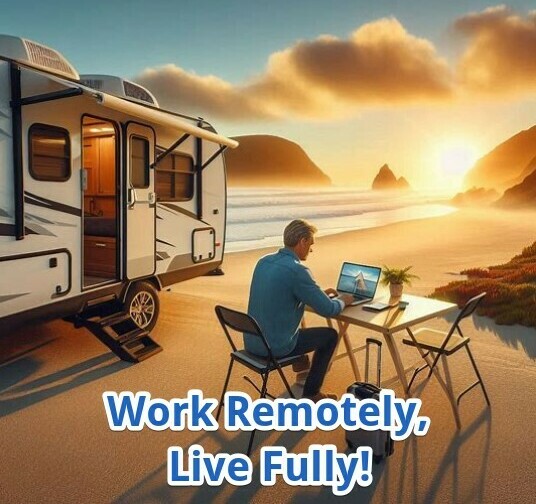
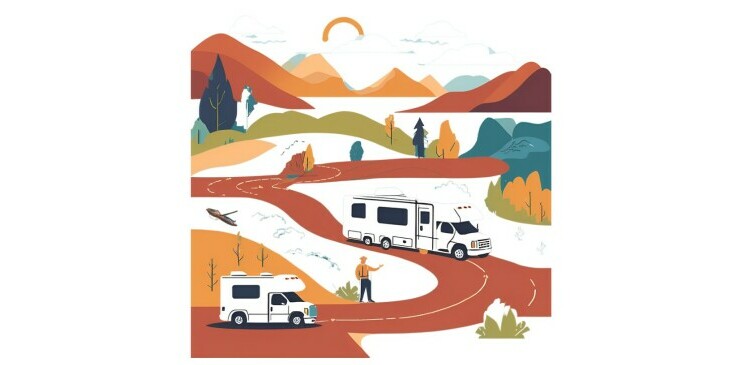
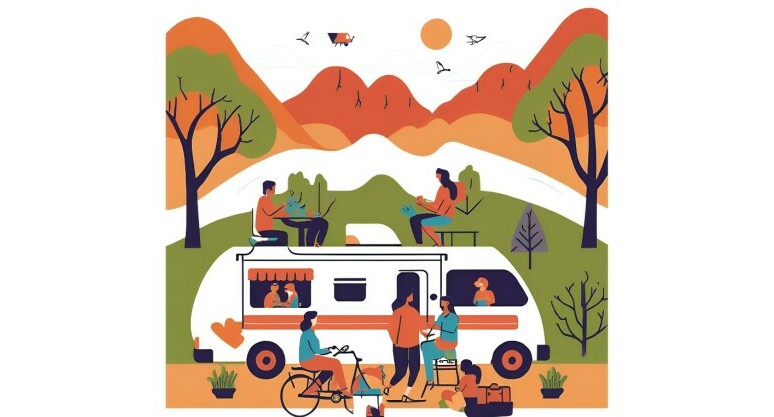


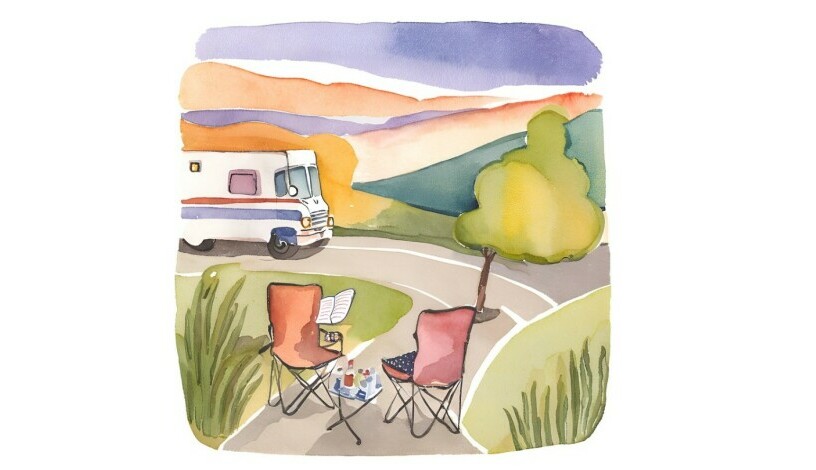
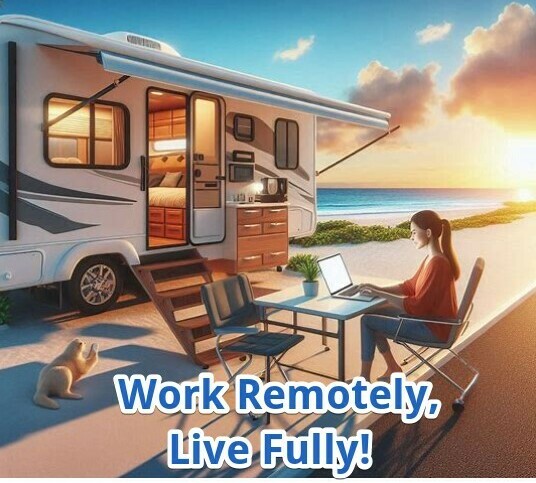

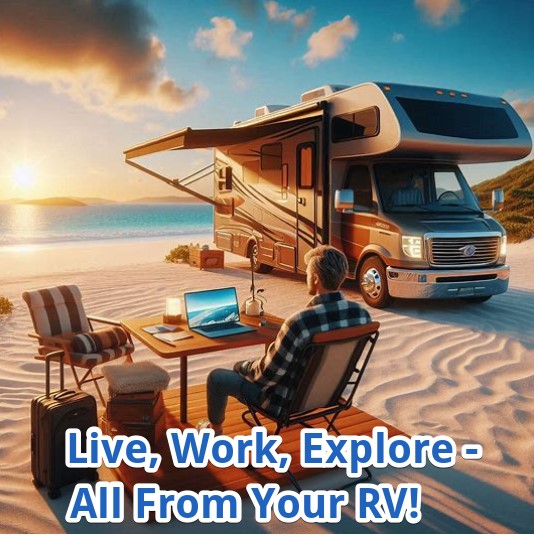
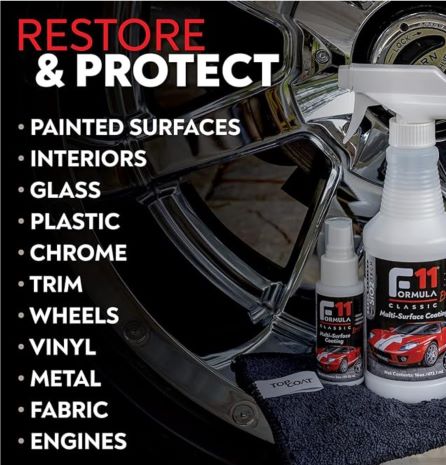
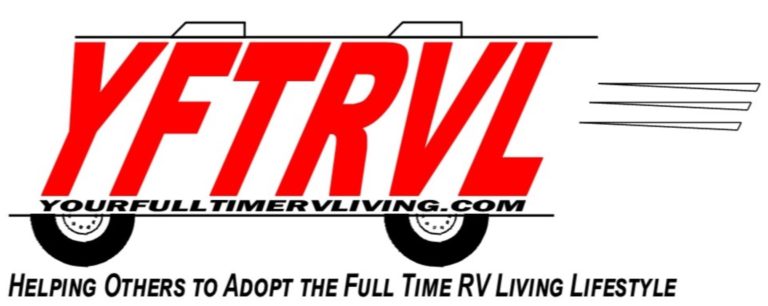



Recent Comments